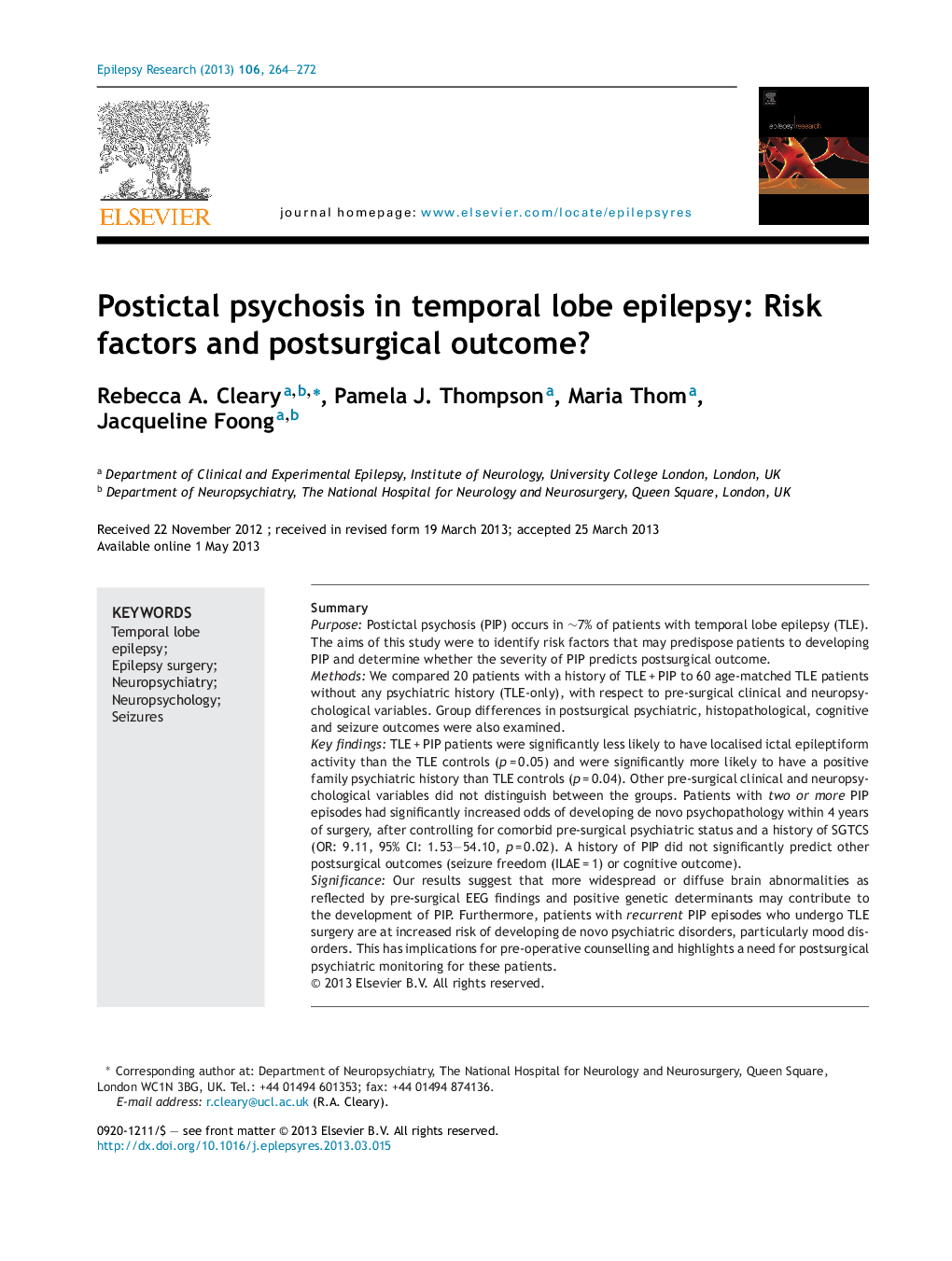| Article ID | Journal | Published Year | Pages | File Type |
|---|---|---|---|---|
| 6015765 | Epilepsy Research | 2013 | 9 Pages |
â¢TLE + PIP patients: less likely to have localised ictal epileptiform activity.â¢TLE + PIP patients: four and a half times increase in odds of a positive family psychiatric history.â¢Patients with two or more PIP episodes had significantly increased odds of developing de novo psychopathology.
SummaryPurposePostictal psychosis (PIP) occurs in â¼7% of patients with temporal lobe epilepsy (TLE). The aims of this study were to identify risk factors that may predispose patients to developing PIP and determine whether the severity of PIP predicts postsurgical outcome.MethodsWe compared 20 patients with a history of TLE + PIP to 60 age-matched TLE patients without any psychiatric history (TLE-only), with respect to pre-surgical clinical and neuropsychological variables. Group differences in postsurgical psychiatric, histopathological, cognitive and seizure outcomes were also examined.Key findingsTLE + PIP patients were significantly less likely to have localised ictal epileptiform activity than the TLE controls (p = 0.05) and were significantly more likely to have a positive family psychiatric history than TLE controls (p = 0.04). Other pre-surgical clinical and neuropsychological variables did not distinguish between the groups. Patients with two or more PIP episodes had significantly increased odds of developing de novo psychopathology within 4 years of surgery, after controlling for comorbid pre-surgical psychiatric status and a history of SGTCS (OR: 9.11, 95% CI: 1.53-54.10, p = 0.02). A history of PIP did not significantly predict other postsurgical outcomes (seizure freedom (ILAE = 1) or cognitive outcome).SignificanceOur results suggest that more widespread or diffuse brain abnormalities as reflected by pre-surgical EEG findings and positive genetic determinants may contribute to the development of PIP. Furthermore, patients with recurrent PIP episodes who undergo TLE surgery are at increased risk of developing de novo psychiatric disorders, particularly mood disorders. This has implications for pre-operative counselling and highlights a need for postsurgical psychiatric monitoring for these patients.
